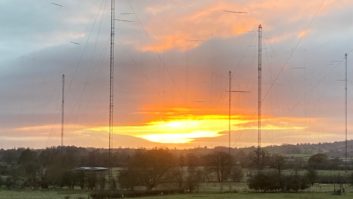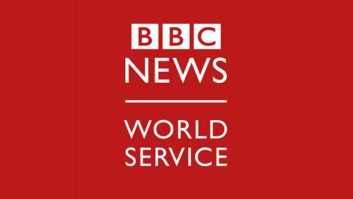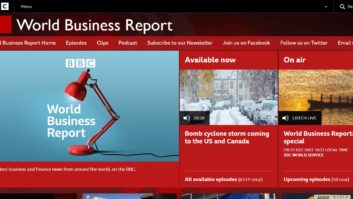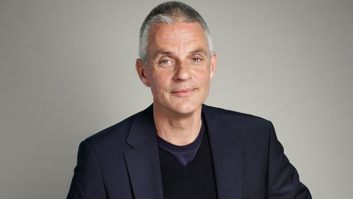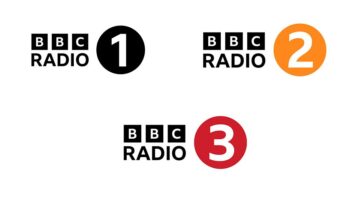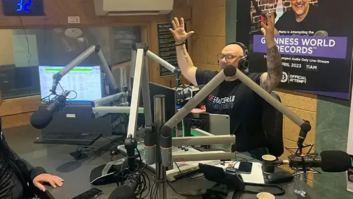It began in 1932 as the “BBC Empire Service” — making radio broadcasts via globe-girdling shortwave to the far-flung territories ruled under the British Crown.
Subsequently, what is now the BBC World Service served as a wartime inspiration and a conduit of coded messages to Nazi-occupied Europe, and a trusted voice of news to Soviet-dominated states. Today, it is once again serving war-torn Europe with English news broadcasts targeted at Ukraine and Russia.
“Created 10 years after the BBC itself was founded, the BBC World Service was there to send ‘voices out of the air,’ which sounds like a poem by Keats but are actually the words of King George V,” said Stephen Titherington, senior head of content for BBC World Service English.
“Since the collapse of the Berlin Wall it has had a different relevancy to people in terms of sharing what is happening within the world, with also a chance for people to add their voice to what needs to be heard.”
After the Berlin Wall’s fall in 1989 and the rise of satellite television and then the web, the BBCWS struggled with its role before refocusing on local broadcasts and streaming media — and cutting back on shortwave, including ending shortwave service to North America — in 2001.
But despite all these changes, “one thing that has been consistent over the years is the BBC’s commitment to independent news,” said Dr. Kim Andrew Elliott, retired Voice of America audience research analyst/radio host and now producer/presenter of “Shortwave Radiogram,” heard on shortwave stations WINB and WRMI.
“To be sure, the BBC European services had partisan commentaries during World War II, but the news remained factual, mostly. Since World II, BBC World Service has been the de facto standard for comprehensive and objective news.”
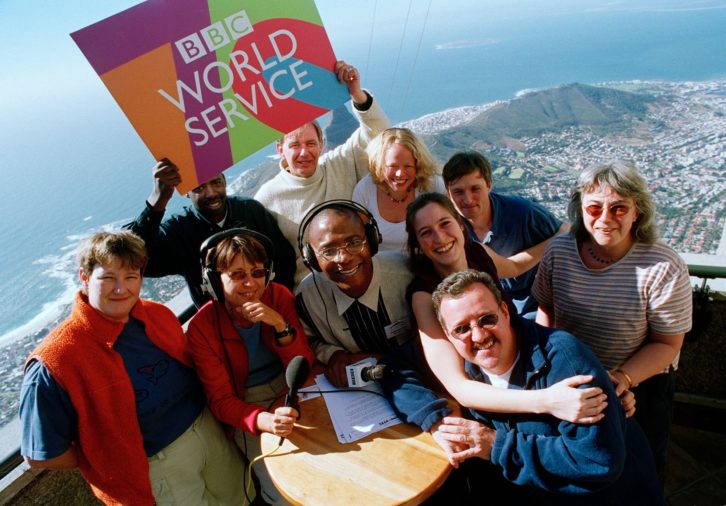
New reality
The BBCWS’s 2001 reinvention came at a time when the Cold War raison d’etre for international shortwave radio had long subsided.
“What had seemed like a very static sense of the world changed, and many long-term conflicts ended, and societies changed,” Titherington said.
“But then new complexities emerged, and there was a huge amount of accelerated globalisation and much changed socially as well as politically. At the same time, access to people and their own access to the world’s media changed immensely.”
In fact, this retrenchment began soon after the Soviet Union fell in 1991.
“The World Service stopped shortwave broadcasting to many areas of the world starting in the early ’90s,” said Andy Reid, owner of canadianradiodirectory.com, co-host of “The Two Wallies” satire program and a shortwave listener/expert for 50-plus years.
“Before then World Service could be easily heard on any modest shortwave radio.”
To keep the BBCWS relevant to global audiences and the U.K. governments that fund it, the World Service updated its presentation style in 2001 while revamping its programming, choice of target audiences and distribution platforms. (And in 2012, the BBCWS left Bush House, the iconic London building from which it had broadcast since 1941.)
[Visit Radio World’s Global News Page]
“We massively increased the range, depth and nature of our news programming — creating the 24/7 spine of News Bulletins and long-form program like ‘Newshour’ and ‘Newsday,’” said Titherington.
“But of course the audience expect more than news, and so we have grown a wide range of programs that include music, debate, food and many more programs that look at how we live, how things work, how we can learn about things.
“Our programs are much more conversational, and we have many more series — such as ‘The Inquiry,’ ‘The Assassination’ and ‘A Wish for Afghanistan’ — which we also release as podcasts — that tell a story over time so we can really explain the intricacies and the drama of world events.”
In terms of target audiences, the U.K. government’s shift away from Cold War priorities, combined with funding cuts, compelled the BBCWS to temporarily reduce its non-English programming.
“But I am glad to say we are now back to more than 40 [as of late 2021]. These include a wide range of African and Indian languages including Amharic, Gujarati, Igbo, Korean, Marathi, Pidgin, Punjabi, Serbian, Telugu, Tigrinya, and Yoruba.
“So there are less European languages than 20 years ago, but important new languages for us which have brought strong audiences and new and exciting people to work with.” (This being said, the BBCWS has not restored Ukrainian or Russian language broadcasts.)
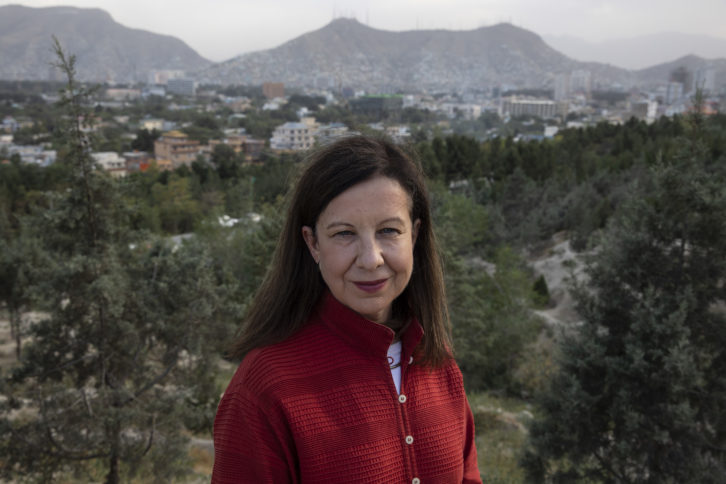
Finally, the advent of the web combined with government funding cuts motivated the BBCWS to add new distribution channels alongside costlier shortwave to get its content to listeners.
One major change has been the retransmission of BBCWS programming by various means.
“We now have built up 200 FM relays, which are a great way of making sure our entire output is heard in quality,” said Titherington. “And more people are listening via the internet: We have our own app, which has had more than a million downloads, and listening via streaming or DAB has been a major growth area in developed markets like Europe.” (To circumvent Russian online censorship, the BBWS is encouraging listeners to use VPNs and Tor browsers, which access the Dark Web.)
In North America, “BBC World Service has been able to tap into the substantial audiences to U.S. public broadcasters,” said Kim Andrew Elliott.
He noted that in early 2021, “Nielsen Audio ratings for Chicago showed public radio station WBEZ number one Monday through Friday 6 to 10 am. WBEZ’s content during that time slot is NPR’s ‘Morning Edition’ and BBC’s ‘Newshour.’ In the car, BBCWS is available to Sirius XM satellite radio subscribers.”
“A benefit for the BBC is that placement on U.S. public radio stations is a revenue source: Those stations all pay for BBC World Service content,” he added.
“There was no way for BBC to monetize shortwave, except maybe through advertising — which would be a difficult business plan given the paucity of precise audience data on the U.S. shortwave audience.”
The payoff: “Our audiences have grown since the end of the Cold War,” Titherington said.
“There is also a new audience listening on air and online — a young audience who have grown in very different times — and there are huge amounts of new stories that people want to know about and share in new ways.”
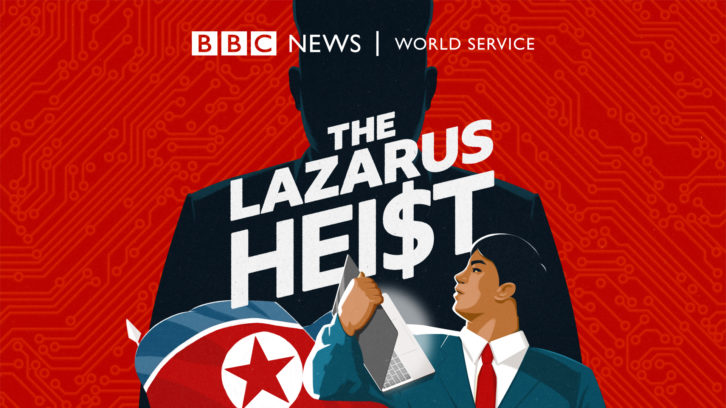
Shortwave retreat
The BBCWS’ decision to cut back on its shortwave footprint — especially in North America, where reliable, easy-to-receive daily broadcasts have ceased — has generated much listener unhappiness over the years.
“The BBCWS’s effective shortwave reach has greatly diminished to the point of the word ‘World’ in its name becoming an exaggeration,” said Glenn Hauser.
He is a shortwave writer/editor and producer/presenter of “World of Radio,” an authoritative weekly shortwave news/information program broadcast globally on many shortwave stations since 1982.
“BBCWS used to have many shortwave transmission ‘plants’ in U.K. and abroad,” Hauser said. “The only one remaining in the U.K. is Woofferton, which also relays other stations. Lots of BBCWS transmissions still go out from Ascension Island toward Africa, and from Singapore for Asia.”
The BBC World Performance Review 2016–2020 stated, “There were significant declines in the BBCWS’ reach via shortwave radio, with further rapid declines expected over the coming years. Nevertheless, despite this trend, shortwave radio has remained important in some regions during this period, particularly in regions that are challenging for the BBC due to media regulation, geography, pandemic or strife. Consequently, new shortwave services have been launched in Korean (September 2017) — a daily 30-minute program also broadcast to North Korea — and for the Horn of Africa (April 2018).”
“Shortwave remains vital for reaching regions that are hostile to BBC broadcasts for reasons of media regulation, geography, the pandemic or unrest,” said Titherington.
“For instance, many services are now focused on Africa, where the BBCWS continues to serve large audiences, and across Asia. These international broadcasts reach across borders providing trusted news and information to people unable to access the same locally.”
Although many North American listeners regularly express regret that the BBCWS cut shortwave transmissions to this region, the logic behind the decision has been borne out by results.
“In retrospect, I ruefully have to admit that the BBCWS made the correct move,” said John Figliozzi, author/editor of The Worldwide Listening Guide and member of the 2000–2001 Save BBC World Service campaign to retain the BBCWS shortwave transmissions to North America.
“It is more ubiquitously available today via the multi-platform approach than it was before via shortwave alone.”
Elliott said, “Except for us shortwave enthusiasts, the shortwave audience has migrated to the newer media.
“Nevertheless, we have seen, in more and more countries, censorship and blocking of the internet. Shortwave can deliver information across national boundaries independent of the internet. Satellite television also sidesteps the internet, but satellite dishes are conspicuous. Shortwave reception is simpler, cheaper … and more discreet. (And) My ‘Shortwave Radiogram’ project shows that text and images can be transmitted by old analog shortwave transmitters, and received on any shortwave radio, with decoding by an app on a PC or mobile device.”
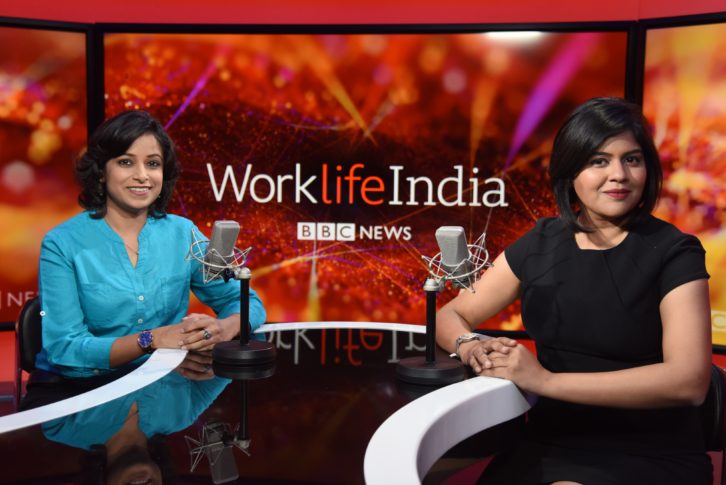
Looking ahead
The launch of the BBC World Service in December of 1932 was not greeted as a world-changing event. In fact, at the time BBC Director-General John Reith predicted that, “The programs will neither be very interesting nor very good.”
Ninety years later, the BBCWS has proven Reith to have been very, very wrong.
As for the future? “We want the BBC World Service to reach more people, but we want that connection to be meaningful: We are not wallpaper,” Titherington said. “We also want to be making things that have a value for people, and we want our audience to feel valued by us. We have to show that we are brave — and that we will tackle the issues that really matter to people.”





